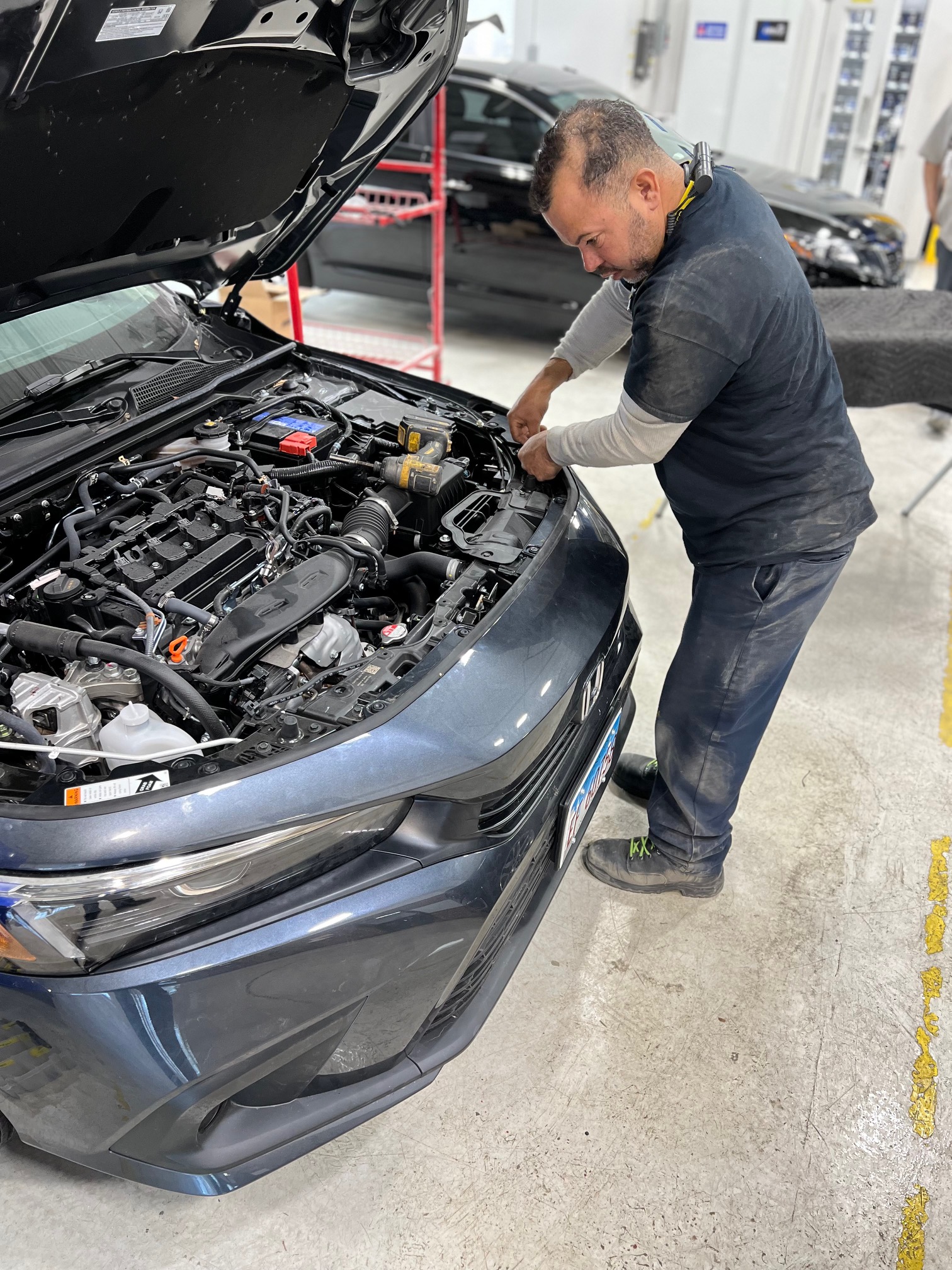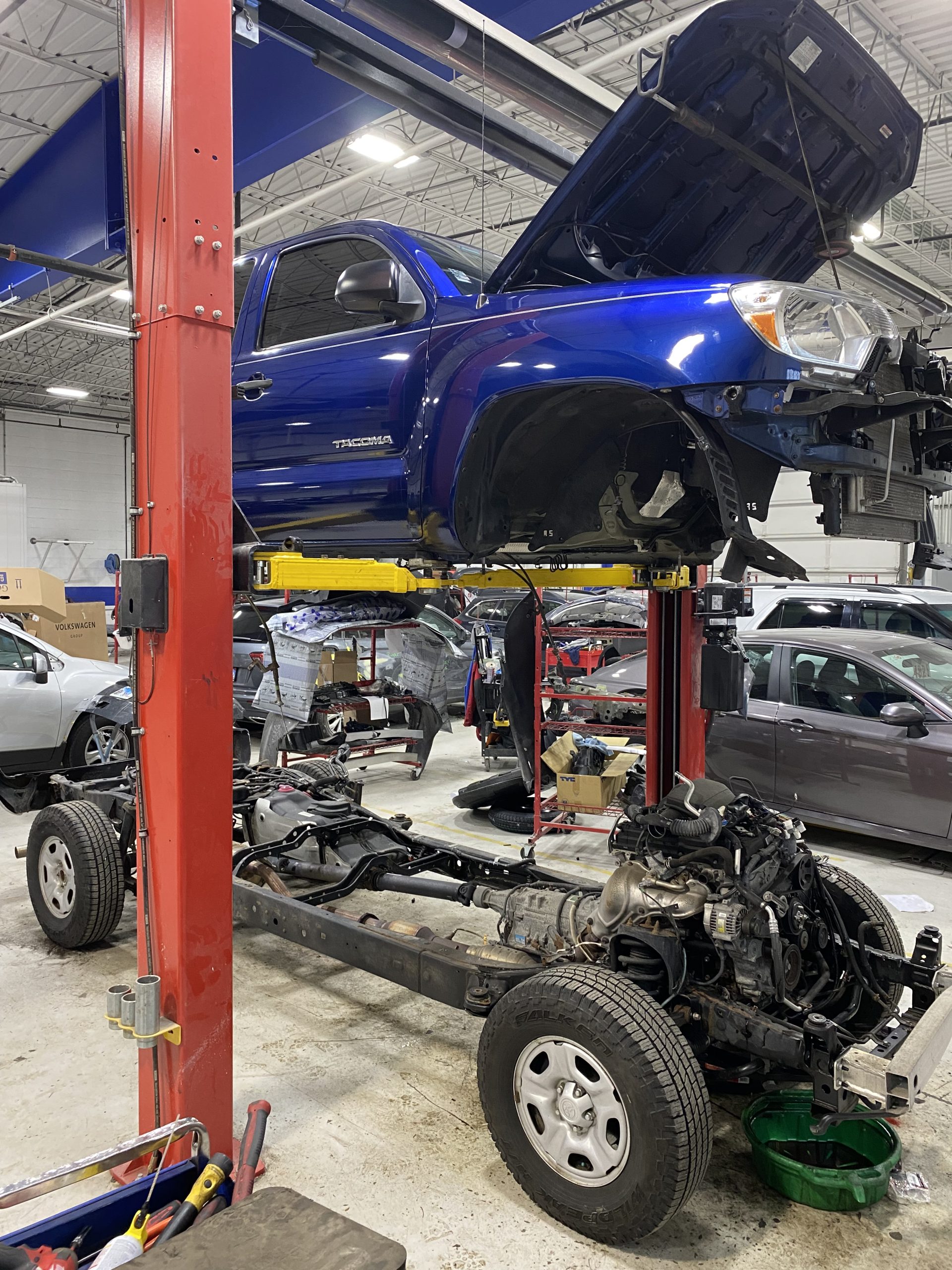MECHANICAL
At Adams Auto Body Shop, we want our customers to have the opportunity to feel comfortable in their vehicle. You can leave the repairs and services to our professionals, but please don’t hesitate to ask us questions about why a service is needed or how it occurred. Stop by or call to talk to one of our friendly and professional technicians.
Brake Pad & Shoe Replacement
Brake pad problems can usually be identified by squealing brakes. If your brake pads deteriorate completely, you’ll hear a grinding metal-on-metal sound when braking, meaning that it’s too late and you’re ruining your rotors or drums! Those with knowledge of auto repair may be able to fix this at home, but you should always see an auto repair professional immediately if you have brake problems.
Shocks
Shocks (or shock absorbers) are mechanical devices designed to smooth out rough roads. The devices do this by converting kinetic energy to another form of energy. Properly working shocks reduce the effect of traveling over rough ground, leading to improved ride quality and vehicle handling.
Struts
Much like a shock absorber (shocks), your car’s struts provide a dampening effect as you travel over a road’s surface. By absorbing the shock of the road, struts allow passengers to ride in a car without constant and uncomfortable motion.
Tires
As tires get older, they lose traction and deteriorate from the inside out, increasing the likelihood of a tire bursting. This can cause a rapid loss of control of your vehicle. To have a better performing vehicle, you need to make sure the tires are in good condition.
Check Engine Light
No one likes to see their car’s “Check Engine” light come on. The light could mean a costly problem, like a bad catalytic converter, or it could be something minor, like a loose gas cap. At Adams Auto Body Shop, we can pull the code and diagnose the problem for you.
Oil Changes
Regular oil changes are crucial for maintaining the health and performance of your vehicle’s engine. The frequency of oil changes depends on factors such as the type of oil used, driving conditions, and manufacturer recommendations, but it’s generally recommended to have an oil change every 5,000 to 7,500 miles or every six months to a year, whichever comes first.




Average 5-star reviews
Based on Hundreds of Users’ Review


